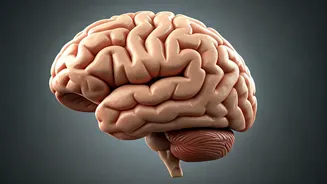Mindful Morning Rituals
Begin each day with a mindful approach. This could involve practicing meditation for a few minutes to center your thoughts and reduce stress. Alternatively,
engage in gentle stretching or yoga to increase blood flow to the brain, providing it with essential nutrients and oxygen. Another aspect includes starting your day with a nutritious breakfast rich in brain-boosting foods. Consider incorporating items like blueberries, known for their antioxidant properties, or nuts and seeds packed with healthy fats crucial for brain function. This initial period of the day significantly influences your cognitive state, setting the tone for enhanced focus and memory throughout the day. By establishing a routine that prioritizes mental well-being, you can foster a brain-friendly environment that supports long-term cognitive health.
Active Cognitive Engagement
Continuously challenging your brain is vital for maintaining its sharpness. Incorporate activities that demand mental agility into your daily routine. This could mean solving puzzles like Sudoku or crosswords, which stimulate critical thinking and problem-solving abilities. Engage in strategic games such as chess, which demand planning, foresight, and adaptability. Also, learn new skills, such as a new language or a musical instrument, as these activities create new neural pathways, enhancing your brain’s plasticity. Remember, the goal is to keep your brain active and flexible, so it can adapt to challenges and maintain its cognitive strength. The more actively you engage your mind, the better it becomes at processing information and retaining knowledge.
Nourish with Nutrition
The food you consume directly impacts your brain's health. Focus on incorporating a diet rich in brain-boosting nutrients. Consider consuming foods packed with omega-3 fatty acids, such as fatty fish like salmon and mackerel, known for promoting brain health. Include a variety of colorful fruits and vegetables, which provide antioxidants that protect brain cells from damage. Increase your intake of whole grains and lean proteins to maintain stable energy levels and support cognitive function. Moreover, reduce your consumption of processed foods, excessive sugar, and unhealthy fats, which can negatively affect brain health. Prioritizing a balanced, nutrient-rich diet offers the essential resources your brain needs to function at its best, supporting long-term cognitive health and well-being.
Regular Physical Activity
Regular exercise not only benefits your physical health but also profoundly impacts your brain function. Engage in at least 30 minutes of moderate-intensity exercise most days of the week. This includes activities such as brisk walking, jogging, cycling, or swimming. Regular physical activity increases blood flow to the brain, delivering more oxygen and nutrients essential for optimal brain function. Exercise also stimulates the release of neurotrophic factors, such as brain-derived neurotrophic factor (BDNF), which supports the growth and survival of brain cells. Moreover, physical activity reduces stress and improves mood, thereby contributing to better cognitive performance and overall brain health. Consistent exercise is thus a powerful tool for maintaining and enhancing cognitive function as you age.
Prioritize Quality Sleep
Adequate sleep is crucial for cognitive function and overall brain health. Aim for 7–9 hours of quality sleep each night. During sleep, your brain consolidates memories, clears out toxins, and repairs itself. Establish a regular sleep schedule, going to bed and waking up at the same time each day, even on weekends, to regulate your body's natural sleep-wake cycle. Create a relaxing bedtime routine to prepare your mind and body for sleep, which might involve a warm bath, reading a book, or listening to calming music. Ensure your bedroom is dark, quiet, and cool to optimize sleep quality. Limit screen time before bed, as the blue light emitted from electronic devices can interfere with sleep. Prioritizing sleep is thus essential for maintaining cognitive sharpness and supporting long-term brain health.



















